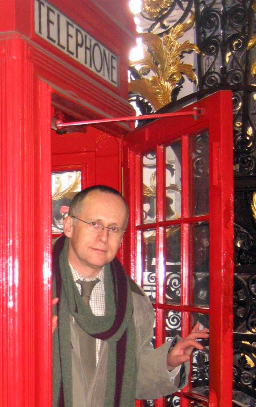
Librarians rejoice. Ted Nield finds evidence that the old ways really are best...
Geoscientist 18.10 October 2008
Who among us who has ever done research has not had the experience of stumbling upon an invaluable, unlooked-for source while pursuing some dead duck reference with a promising title? Who has not picked out the wrong volume, and found some gem they would never otherwise have seen? Who has not scanned a shelf of an unfamiliar journal, and felt the inexplicable tug of one particular volume…?
The rational emotion that these quasi-mystical experiences create (in me at least) is a sort of tristesse d’amour - momentary joy, followed by melancholy. For how many more jewels may lie, hidden forever in the literature forgotten gems in thick alluvial mud? How might they be rescued from their oblivion? One cannot read everything…
Today therefore we are justly proud of the online availability of our journals, which in virtual libraries like the Lyell Collection provide us with keyword searches, full text searches, and the convenience of burrowing swiftly from citation to paper with one click. This surely, offers the possibility of finding everything. Or does it?
Recent research by James Evans, a sociologist at the University of Chicago, suggests that in fact the reverse may be happening. Perhaps because I have always been attracted by the idea that all our actions ultimately achieve exactly the reverse effect of those we intend, I find this curiously satisfying. More hopeful souls than I may be less amused by his findings.
James took Thomson Scientific’s citation indexes covering 6000 influential journals, going as far back as the end of WW2. He worked out when each first became available online; and then, with a database of 34 million papers at his fingertips, looked at every paper’s reference list and worked out for each cited paper how many back issues it had been referenced in that were available online at the time of citation. His analysis shows that the average age of papers cited for any journal fell by one month for every additional year of back issues that were then available on the Web. And once a journal made it onto the Web, the number of papers in it receiving any citations at all, fell.
One possible reason for this result is that computer searching has removed the need to at least glance at material of apparently dubious or marginal interest. Paradoxically, these shiny new tools may be narrowing the academic mind, and not broadening it as everyone hoped and assumed.
Evans confined his study to scientific disciplines where, unlike many areas of geological science, older literature is relatively useless; so perhaps geosciences are less susceptible. It does, though, provide those of us who relish the happy hours we spend in the company of librarians and their dusty charges, with the feeling that our nostalgia for old ways is not merely the equivalent of refusing to watch a cricket match that isn’t being played in whites…
Reference:
Evans, James 2008. Electronic publication and the narrowing of science and scholarship. Science 18 July, v321 pp395-399.